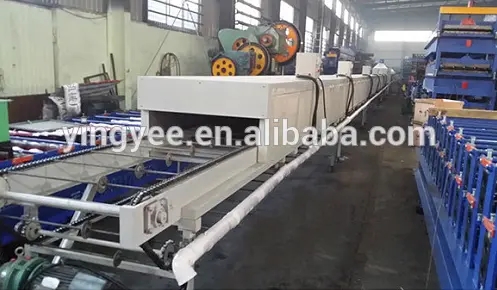
The Importance of Hydraulic Thread Rolling Machines in Modern Manufacturing
In the realm of manufacturing, the precision and efficiency of processes are crucial for producing high-quality components. One key player in this area is the hydraulic thread rolling machine. These machines are essential tools for creating threaded fasteners, which include screws, bolts, and nuts, commonly used across various industries such as automotive, aerospace, construction, and electronics. As demand for precision-engineered components continues to grow, the role of hydraulic thread rolling machines becomes increasingly significant.
Understanding Hydraulic Thread Rolling Machines
Hydraulic thread rolling machines utilize hydraulic pressure to form threads on a variety of materials, including steel, aluminum, and plastics. Unlike traditional machining processes that cut material away to create threads, rolling creates threads by displacing the material, resulting in stronger and more durable components. This method not only improves the mechanical properties of the threads but also minimizes waste and enhances production efficiency.
The core operation of a hydraulic thread rolling machine involves placing a blank workpiece between two rotating dies. As the dies roll over the workpiece, they impart the desired thread pattern, effectively rolling the material into shape. This process is known for its high speed and capability of producing threads with exceptional accuracy, often achieving tolerances of just a few microns.
Benefits of Hydraulic Thread Rolling Machines
One of the primary advantages of using hydraulic thread rolling machines is the increase in production efficiency. Their ability to operate at high speeds allows manufacturers to produce large quantities of threaded components in a shorter time frame. This efficiency is particularly beneficial in high-demand sectors like automotive manufacturing, where the need for robust fasteners is constant.

Moreover, thread rolling is known for producing threads with superior surface finish and structural integrity. The rolling process induces optimal grain flow, which strengthens the material without compromising its density. This characteristic is vital for applications where the mechanical properties of fasteners are paramount, such as in critical load-bearing applications.
Another key benefit is the reduction of material waste. Traditional machining processes can generate a significant amount of scrap metal as they cut away material to form threads. In contrast, thread rolling processes displace rather than remove material, resulting in less waste and lower costs for manufacturers. This efficient use of raw materials aligns with the growing emphasis on sustainability in manufacturing practices.
Choosing the Right Hydraulic Thread Rolling Machine Supplier
Selecting the right supplier for hydraulic thread rolling machines is of utmost importance for manufacturers aiming to enhance their production capabilities. Factors to consider include the supplier's reputation, machine quality, after-sales support, and customization options. A reliable supplier should be able to provide machines that meet specific production needs and offer technical support for maintenance and operation.
Additionally, it is essential to evaluate the supplier's expertise in the field. Experienced suppliers are more likely to stay updated with the latest advancements in technology, ensuring they offer machines equipped with state-of-the-art features. These advancements might include programmable controls, advanced hydraulic systems, and energy-efficient designs, which can further bolster production efficiency.
Conclusion
In conclusion, hydraulic thread rolling machines play a crucial role in the production of high-quality threaded fasteners, significantly enhancing efficiency, strength, and sustainability in manufacturing processes. As industries continue to evolve and demand for precision-engineered components rises, the importance of choosing the right supplier becomes more pronounced. By investing in reliable hydraulic thread rolling machines, manufacturers can not only streamline their operations but also ensure the production of superior components that meet the rigorous demands of today's market. This machine technology represents a critical investment for any business looking to thrive in a competitive manufacturing landscape.